from thefreeonline on 18th May 2024 by Adongo Ogony and Evelio Contreras at Deep Cogitation
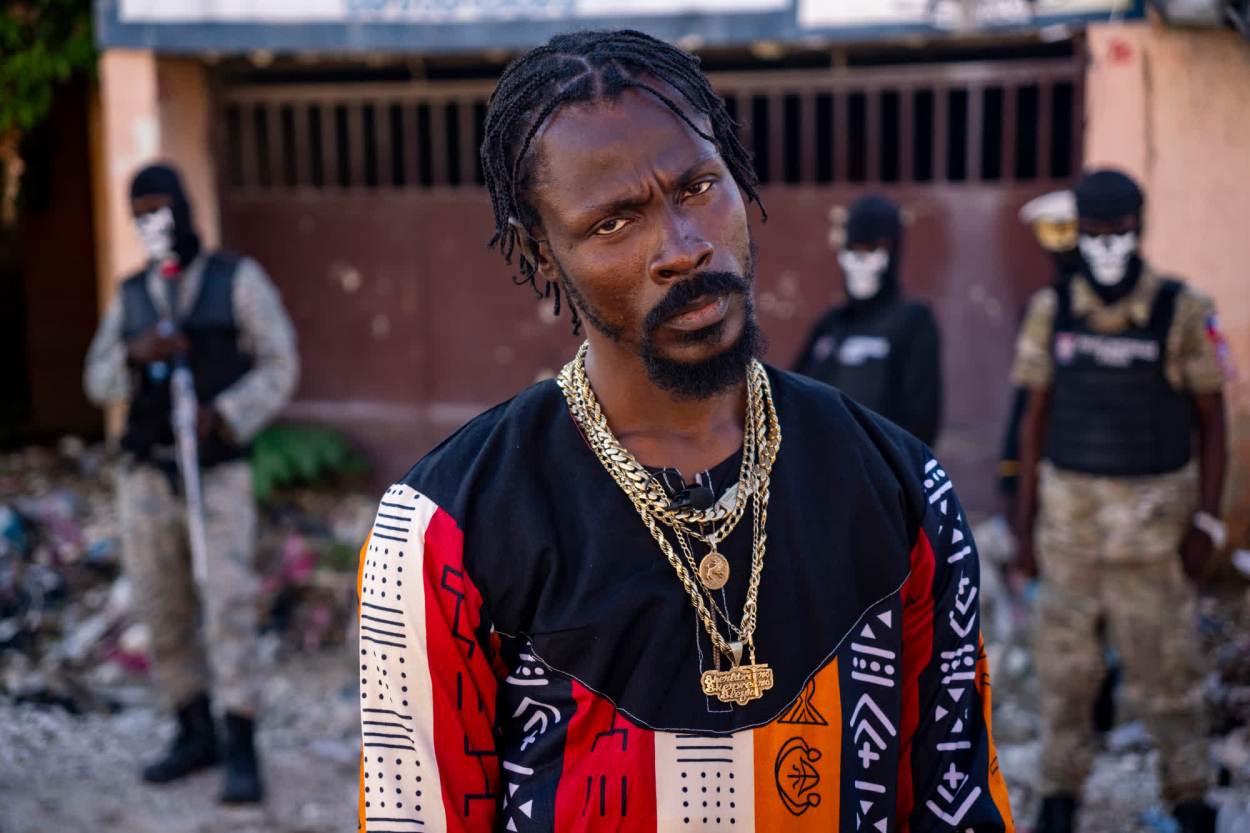
President Ruto’s Disaster Mission in Haiti is Ready To go as the US gives Money to Ruto at The White House
By Adongo Ogony May 18, 2024 Kenya’s Haiti Deployment Faces New Court Challenge The Thirdway Alliance Kenya led by Dr Ekuru Aukot has filed a new lawsuit seeking to prevent the government from sending police to violence-plagued Haiti as part of a UN-backed mission.
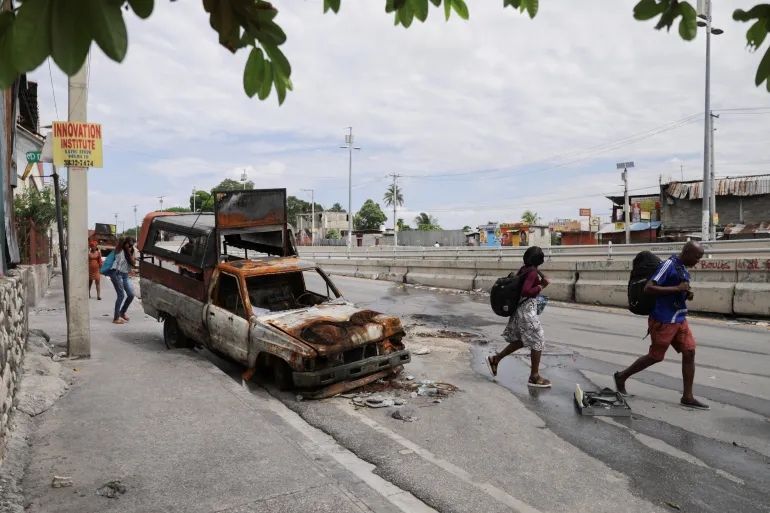
UN urges US to stop forced returns to Haiti after latest deportation fligh Haitians may face ‘life threatening risks’ and further displacement if returned to Haiti, UN refugee agency says... .. photo: Residents of the Lower Delmas area carry their belongings as they flee their homes due to gang violence, in Port-au-Prince, Haiti
Dr Aukot and Miruru Waweru lodged the complaint on Thursday, arguing that the government had “blatantly disregarded” a January court order prohibiting the deployment as unconstitutional and illegal.
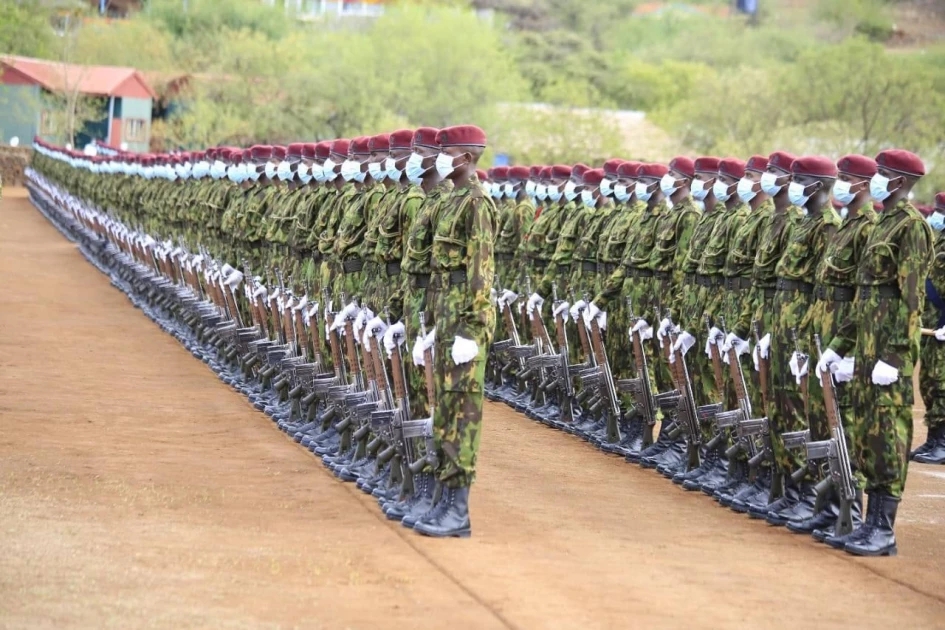
The lawsuit said that its petitioners were “reliably informed” that the Kenyan deployment may take place no later than May 23, “hence the urgency of this application”.
Haiti has suffered from poverty, political instability and natural disasters for decades, and the UN-backed multinational force — to be led by Kenya — has been tasked with helping its beleaguered police rein in criminal gangs.
The expected deployment of a first batch of Kenyan police to the Caribbean nation would coincide with a visit by President William Ruto to Washington where he will meet US President Joe Biden on May 23.
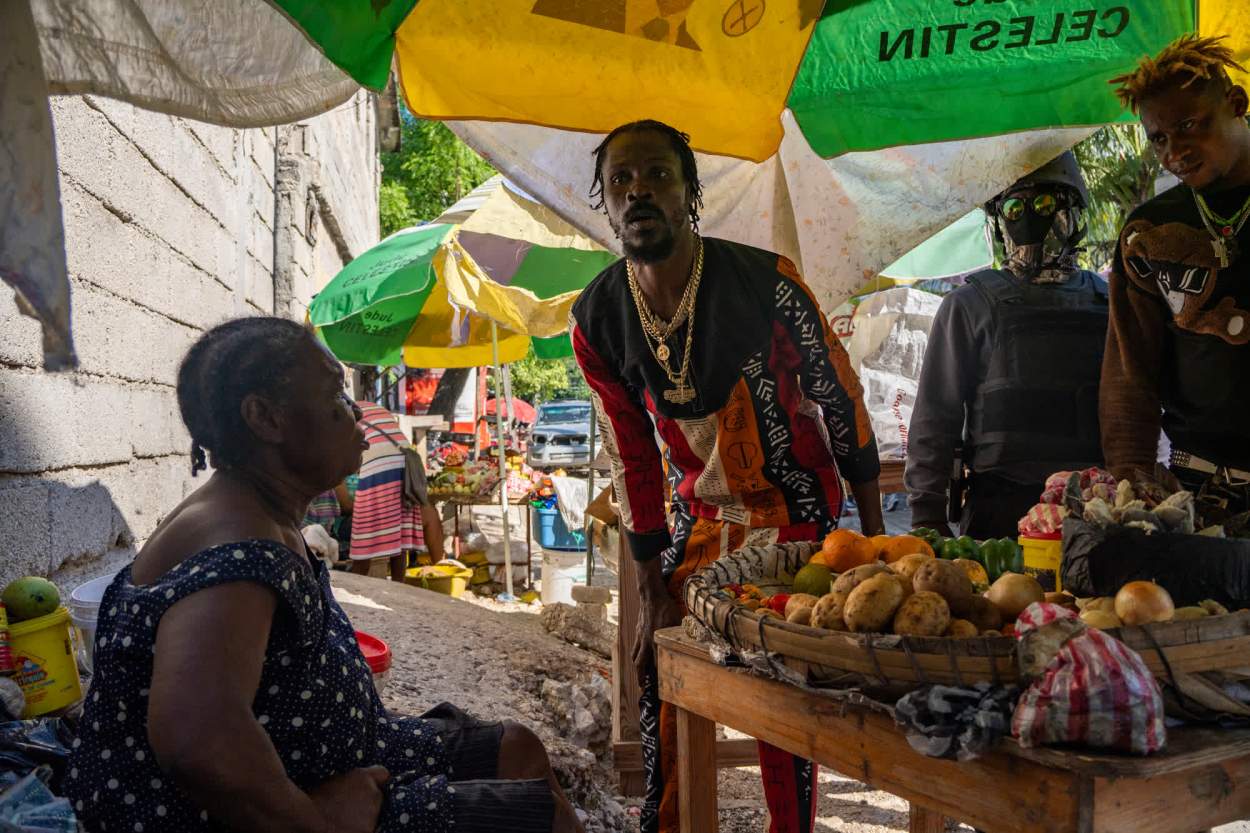
A Haitian source had told AFP in early May that a first contingent of 200 Kenyan police were expected by that date.
The Kenyan government has not publicly commented on the date, but an interior ministry source told AFP they could arrive by next Tuesday.
Kenya pledged last July to deploy up to 1,000 personnel to Haiti, an offer welcomed by the United States and other nations that had ruled out putting their own forces on the ground.
Photos offer rare glimpse into Haitian gangland
Story and photographs by Evelio Contreras, CNN
Published April 30, 2024
Note> CNN is a mouthpiece of the US regime, with its 750 foreign military bases, and largely responsible for the continuing struggle in Haiti. In other analyses we have read that several of the “gangs” are authentic revolutionary movements. Below may be a nice photo essay, but the text is edited by CNN.
Gang leader Vitel’homme Innocent poses for a photo in the Tabarre district of Port-au-Prince, Haiti.
Soft spoken and direct, Vitel’homme Innocent, who is on the FBI’s “Ten Most Wanted List,” answered our phone calls over WhatsApp to say he would promise CNN safe passage into his gangland territory in Port-au-Prince, Haiti.

It was my second trip in as many months to the Haitian capital, working as a photographer with Senior National Correspondent David Culver and Senior Editor Caitlin Hu, after gang attacks brought the country’s international airport and main seaport to a standstill, effectively shutting down the city.
After spending time in March with communities trying to protect their homes and families against the gang incursions, we wanted to understand the role of gangs in Haiti. Weeks later, we traveled back to Port-au-Prince to meet with Innocent and see for ourselves where he fits into the landscape of a city that is 80 percent controlled by gangs.
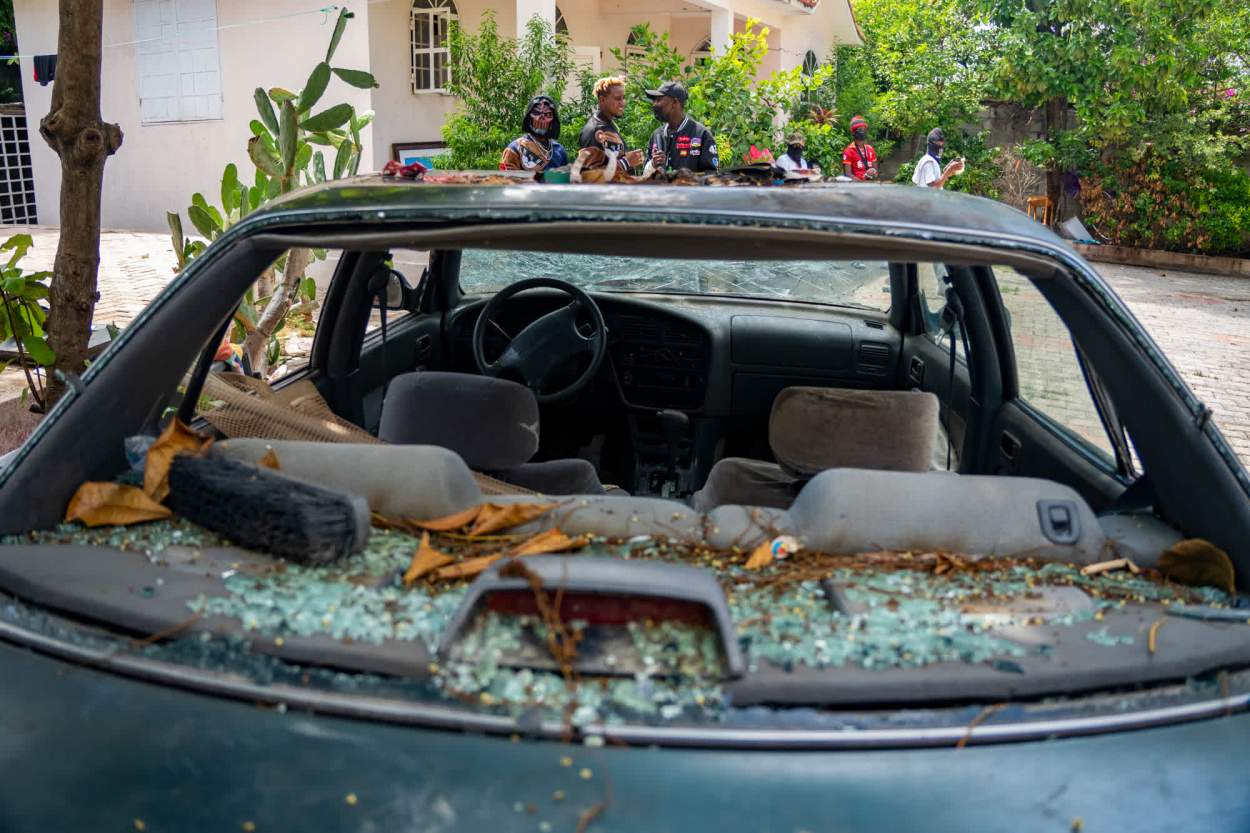
A wrecked car is next to the pool of the house where a CNN crew met Innocent in Port-au-Prince.
Innocent is the leader of a gang called Kraze Baryé, which controls a handful of neighborhoods near the US Embassy. He is accused of kidnapping US citizens in 2021 and in 2022, allegedly causing the death of an elderly American woman.
On the day of our meet, we waited on an empty road outside Innocent’s territory for one of his men to take us in.
We didn’t know what would happen next, so I wanted to capture everything.
Multiple Kraze Baryé members wore what appeared to be police gear, either fake or stolen.
With poorly maintained weapons and a lack of training, Haiti’s gangs would offer little resistance to a professional fighting force, experts say.
I usually look for moments that are meaningful before I press record. But as soon as we crossed one checkpoint with men wearing fake military uniforms, another checkpoint appeared before us.

It was important to record all of it because Innocent could be waiting for us around any corner.
When we met Innocent, 45 minutes after entering his territory, we had only hours to be with him before curfew.
Normally, when I take photos and shoot video on assignment, I carve out times to do both. I look for a moment when I can put down my video camera and take stills with my photo camera to capture different scenes and emotions.

But in a situation like this, where every move could mean losing access or worse, I took pictures at the same time as shooting video.
I found that a good time to take pictures was when our translator would interpret Innocent’s Haitian Creole into English. I would use those moments to take stills of Innocent and the other gang members.
I looked to my left and right at young men who looked like teenagers as they patrolled the streets on high alert for danger in what had the feel of a war zone.
I took pictures of them while they waited. A few wanted portraits. We didn’t speak the same language, but we wanted to share a moment of recognition. It felt like an impromptu photo session. One where we could take a breath and think about our interactions.
For our afternoon with Innocent, he took us to the most precarious spots in his controlled neighborhoods. Behind a barricade, we could see a police station where armored tanks rolled in and a dried-up riverbed where a rival gang lived on the other side of his territory.
He took us to a place where his grandmother lived and businesses he owned had been destroyed.

On our way out of his territory, through bumpy roads and deep pools of rainwater, we stopped to pick up food from a neighborhood vendor.
We met blind people and an elderly woman with a foot injury living under Innocent’s rule. These are people — the ones who are not leading an event, but living quietly — that I look for when I take photos.
Even though we were safe for the moment, I reflected on what their safety would look like when we were outside their territory and no longer watching Innocent and his gang.
Ruto sending Kenyan troops to Haiti for money, US ex-diplomat Daniel Lewis Foote says
SATURDAY MARCH 23 2024

An American diplomat has made controversial claims about Kenyan President William Ruto’s move to head the UN-backed mission to restore peace in Haiti.
In an interview with CNN, Daniel Lewis Foote, who was the US special envoy to Haiti from July to September, said that the Kenyan president was after the money the UN is expected to inject into the mission.
Foote claimed that the Haiti mission was no walk in the park and that the well-organised gangs that overthrew the government would fight the Kenyan police to the death.
continue reading here…

4 thoughts on “President Ruto’s Disaster Mission in Haiti is Ready To go if the US gives $100K to Ruto at The White House”